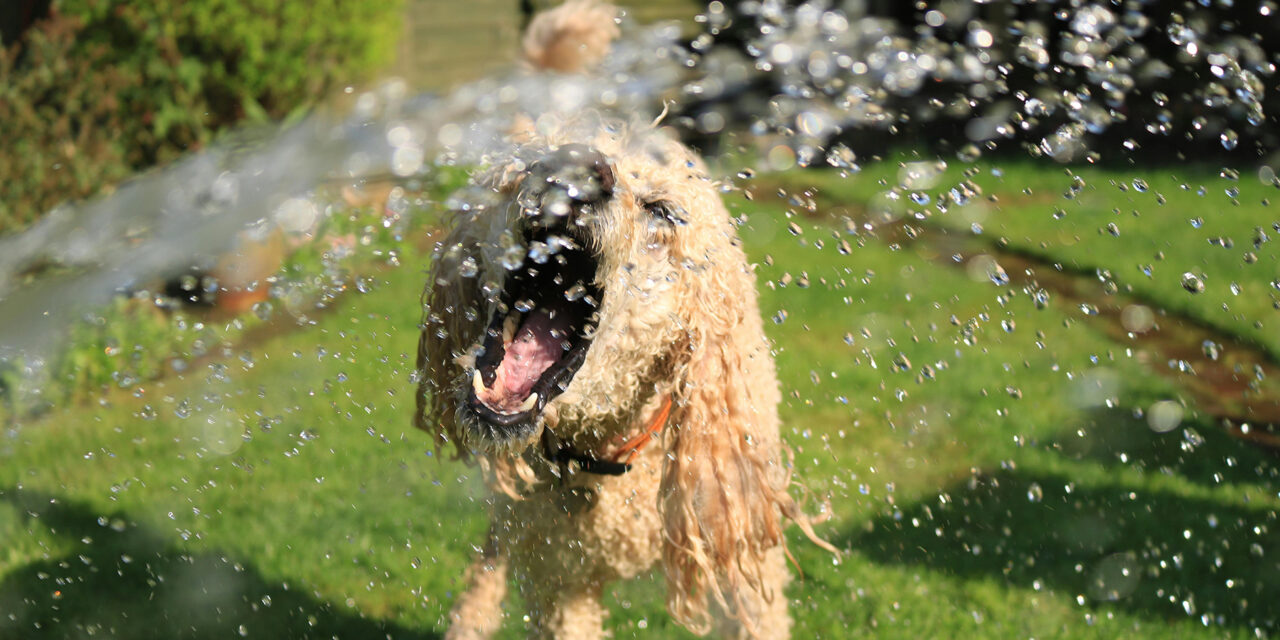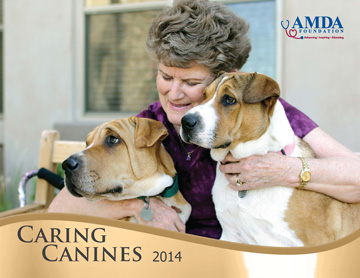
Tara Tillotson, DVM, says that awareness is key to preventing summertime pet tragedies (photo courtesy of Desert Ark Veterinary Care of Arizona).
It’s summertime in Phoenix and you wouldn’t think of walking down the street barefoot. Or even walking across the patio without shoes. So, why would you expect your dog to do it?
“Sidewalks, streets and parking lots get extremely hot,” said Tara Tillotson, DVM. “Dr. T,” as her colleagues and patients’ owners call her, is a Phoenix native and associate veterinarian at Desert Ark Veterinary Care of Arizona.
“If it’s too hot for your feet, it’s too hot for your pet. Take walks early in the morning or late in the evening. Put the palm of your bare hand on the surface. If it is uncomfortable to hold it there for five seconds, it is too hot for your animal’s bare paws,” she said.
Dr. T also cautions about how quickly animals confined to a closed vehicle can suffer fatal consequences. “It happens within minutes in a hot car,” she said. “Leaving a pet outside without shade and water can also kill pets. We see it every year, starting in early spring and lasting into the fall.”
Here are a few tips provided by veterinarians and the Arizona Humane Society:
- Provide fresh water — and plenty of it — for all pets, whether they are inside or outside.
- If your animal is outside, be sure they have shade throughout the day, and a way to lie down on dirt or grass instead of concrete or asphalt.
- Older pets as well as pets that are ill are especially vulnerable to heat. If your pet takes medications, ask your vet or pharmacist if any of their medications make them especially vulnerable to heat and sun.
- Hot, thirsty animals will seek water anywhere they can find it. They may chew on plants that they otherwise would ignore, and some backyard plants are toxic. Among the common ones in Phoenix are oleanders and Mexican Bird of Paradise. Call the Arizona Poison and Drug Information Center at 1-800-222-1222 if you are concerned.
- Sunburn? Yes, pets can get sunburned. Their noses and around their eyes can be burned by exposure to the sun. Don’t use sunscreen — they may lick it off. Should you shave a particularly hairy pet in the summertime? If you do, remember that this will expose their skin to possible sunburn.
- Backyard pools are a hazard to children, disabled people and to pets and wild animals. Be sure your pool is secure. For pets, teach them where the steps are so they can get out. Some pool owners affix a door mat to the side of the pool, so that pets as well as other animals can use it as a ladder to get out of the water.
- Teach your children and others in your household to pay special attention to pets in the hot weather. Even the youngest ones can remind adults to fill water bowls.
Susan Fuchs, North Phoenix resident and pet lover, recounts a hard lesson learned.
“My Chocolate Chip, a rescue Lab, got into my pool on a hot summer day. Maybe he fell in — we’re not sure. I went home from work at lunch to check on him and he was in the pool, desperate to get out. He had forgotten or didn’t know how to use the steps, and in his panic, had clawed at the tile until he was exhausted and all his front nails were gone. I got home just in time to help him.
“Big lesson for us — we immediately started locking his doggie door when he was home alone, to secure the pool and not take a chance that he might be outside by himself. Please learn from our mistake that almost cost Chocolate Chip his life.”
Some veterinary practices offer urgent care services to animals who need immediate help. Experienced pet owners advise that all animal lovers identify the closest urgent care center before the need arises. Post the numbers on your fridge or somewhere everyone in the household will see it. Put them into your phone.
“Take the same care of your animals that you do of your children and elders year ‘round,” said an experienced vet tech at a 24-hour emergency care facility in North Central. “It’s so very sad to see animals suffering, and their owners are heartbroken when they realize they could have prevented the problem. Teach the little kids by your example, and stay vigilant during these hot days.”
Dr. T said that awareness is key, “But even the most devoted, heat-aware owner can make a mistake. Watch for excessive panting, drooling and being out of it. Prevention is so important, but if your pet starts to act disoriented, off balance, panting, vomiting or having diarrhea, get help immediately.”
Find more summer pet safety tips online at www.azhumane.org/heat-safety-tips-for-pets.










































